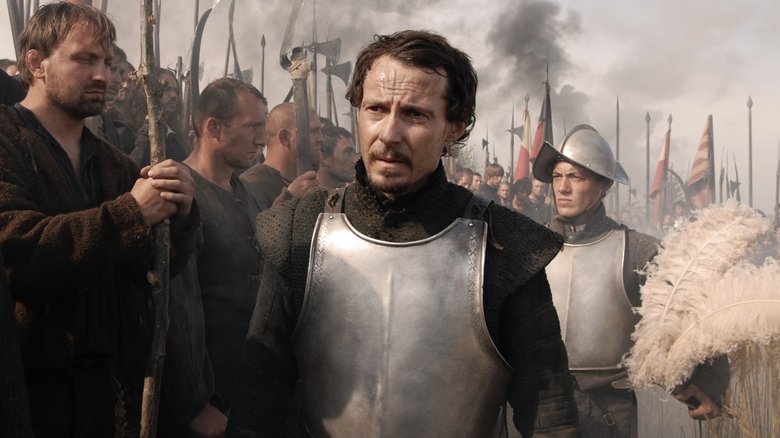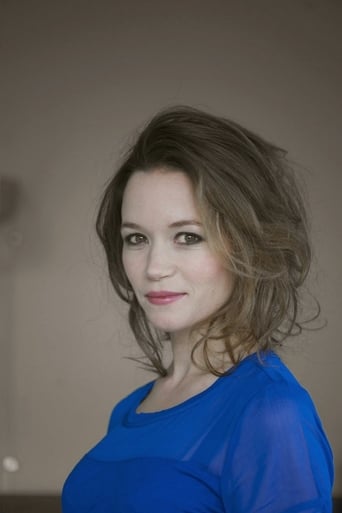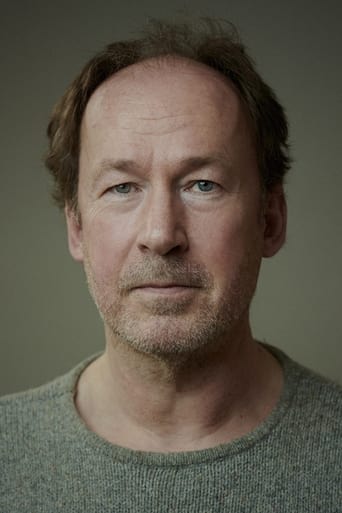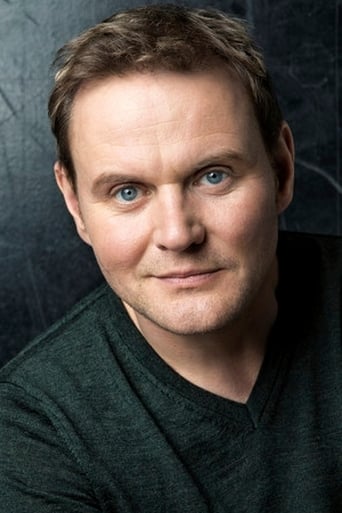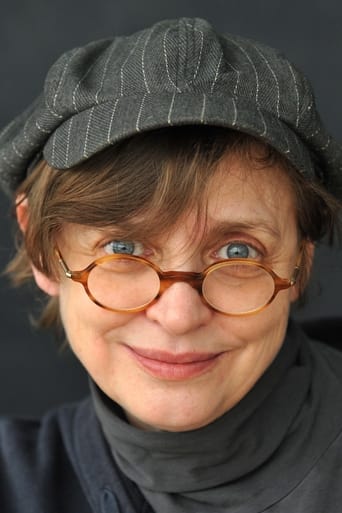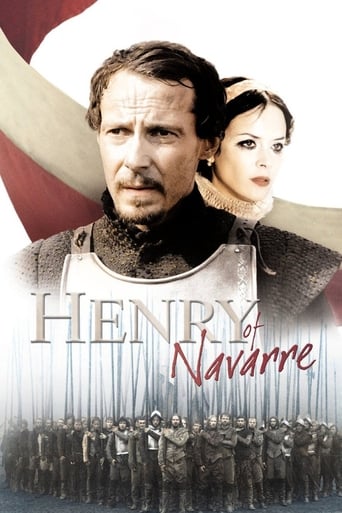
Henri 4
May. 27,2010A wide-ranging, energetic period piece tracing the rise of the Protestant Henry of Navarre as he goes from battlefield warrior to France's beloved King Henri IV. Director Jo Baier's epic is a classically entertaining adventure, albeit one with more than a little bloodshed and frequent bawdy sexual interludes. In late 16th-century France, Catholics and Protestant Huguenots were at war. Seemingly seeking peace, the French dowager queen, Catherine de Medici summons Henry to her court to have him marry her daughter, uniting the two warring factions. However, the Catholics slaughter the Protestant wedding guests in what became known as the St. Bartholomew's Day massacre and Henry-now married-must use all his guile to both stay alive and maneuver for the throne. [Written by Palm Springs International Film Festival]
Similar titles

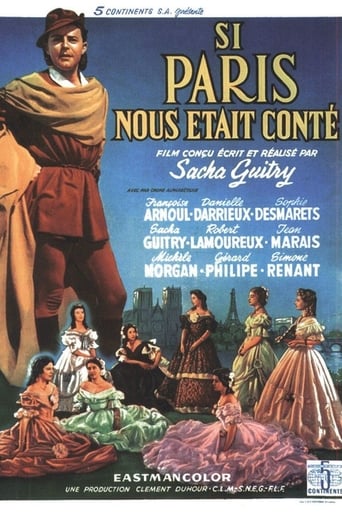
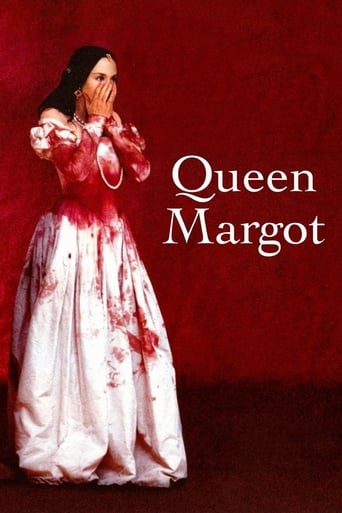
Reviews
Too many fans seem to be blown away
I wanted to but couldn't!
Great movie! If you want to be entertained and have a few good laughs, see this movie. The music is also very good,
Although I seem to have had higher expectations than I thought, the movie is super entertaining.
Ambitious in its intentions, based on Heinrich Mann's historical novel, this movie looks apparently pretty good: it surely has a much more authentic atmosphere especially compared to the infamous 'La Reine Margot', good cinematography, and decent acting (except Charles IX). But, contrary to another reviewer who thought it too long, actually it's too short and over-simplified.The dire, murderous and suspicious atmosphere is very well realized, as many of those admired crowned heads have behaved sometimes like insane mass murderers, and luckily the glamorized feel of too many historical films has not crept in here. But the script looks rushed, hurrying and compressing events, decades, characters and their motivations. Thus, even the action is unclear for a viewer unfamiliar with that age and place, and important historical or dramatic events are but hinted at or simply omitted (the Ligue and its rebellion, the deaths of Charles IX, Henri III and of his brother, the last Valois heir, and also Caterina's death).In reality, the historical characters have been pretty complex and contradictory: Caterina was not only an evil and scheming hag such as her portrayal in Dumas' novels, but an active and courageous politician striving (mostly in vain) to maintain a fragile balance in a kingdom devastated by three rival factions (the Court, the Guise family with its Ligue, and the Huguenots led by the future Henri IV). Or Henri III, her favorite son, was indeed a weird, undecided, bisexual, perhaps bipolar fellow, but certainly not an idiot: it was him who 'eliminated' his main rival the duke de Guise and finally allied with the future Henri IV against the Ligue and named him heir presumptive. The death of Gabrielle is not elucidated in the film (was it Rosny, the king's main adviser, really? Unbelievable).Maria de Medici is treated in an infantile manner, and even the king's assassination is very poorly explained. Also lacking are many other tentatives of assassinating him throughout all his life course. The pacification of France after his last conversion and crowning took in reality many years and required much effort, from battles to bribery for rebellious dukes. By the way, the duke d'Epernon, the last standing rebel and a main mastermind of the king's assassination, is absent from this film.To sum all these up: despite its ambitious luster, strangely the film has the feel of a low budget one: too few characters, rushed situations, poorly explored motivations, quite few extras in the scenes at the Court. Which is in fact bad for a film treating such dramatic and surprising events.
From an early start Henri of Navarre, the protestant nobleman saw war first hand. As a child he was present in battles that would mark him for all his life. He also knew fear in his own person when he was surrounded by warriors engaging in combat. In fact, Henri's fate was predicted by Nostradamus himself, when Henri's mother brought the seer to take a look at her young son. Henri was a man destined for great things, as indeed it was the case with his life took him from a small kingdom to be the ruler of one of the most powerful European nations.Born protestant, Henri had everything stacked against him, when France totally dominated by the Pope and his strict Catholic Church. The throne of France was dominated by the powerful Catherine De Medici. Her weak son Francis was the ruler of the land, but her ambition was to make her other son Henri, to succeed his brother. That way Catherine was able to control everything. In a bold move, Catherine decided to marry her daughter Margaret to Henri of Navarre to cement France's dominance. The union proved to be stormy at best. The reign of Henri III, a homosexual, ended with his assassination. Henri of Navarre became the king of France. He wanted the best for the country he loved, but had to yield to entering a conversion that no one really believed came from his heart, but it was a sort of marriage of convenience. Henri true love was Gabrielle D'Estress, who was not accepted by the Pope. Instead he endured a terrible marriage to another Medici, Marie, who gave him an heir to continue the lineage. Henri had a horrible end as he was slain in the streets of Paris.An ambitious project "Henri 4" is an epic of great proportions. A co- production between Germany, France, Spain and the Czech Republic, the film tries to make justice to those turbulent years in a country dominated by religious wars. Directed by Jo Baier, the film will surely delight history fans for it shows powerful individuals whose ambitions were incredible. The cinematography of Gernot Roll, the veteran German cameraman, is amazing. Mr. Roll catches nuances as well as the fury of the battles in details seldom seen. The incidental music is by Hans Zimmer and Henry Jackman. The mainly German cast does a wonderful rendition of the drama as staged by Mr. Baier.
A German made film (originally released as a miniseries) about the life of the 16th century's Henri (or Henry) IV of France, one of the crucial kings in the French Wars of religion (by one count, Henry changed religions four times during his life between Catholicism and Protestantism). Solid and interesting, just a bit overlong at two hours and a half, it has both French actors and Germans actors dubbed in French (I didn't care much about this, though perhaps some French native speakers would). Medieval and early Modern history can be very complicated (the personal gets involved with the political, as the main political leaders tend to be relatives as well) but if you pay attention the various political plots are reasonably well explained in the film. On the minus side, the movie could have benefited from a more charismatic lead than Julien Boisselier as Henry. And Ulrich Noethen (who played Himmler in Downfall) outrageously overacts as Charles IX, one of Henry's predecessors. But the beautiful Chloe Stefani is lovely as Henry's mistress, Gabrielle d'Estrées (none more so when she appears nude, as she does frequently here). And Hannelore Hoger is suitably evil as queen Catharina de Medicis, a major plotter against Henry.The production values are reasonably good, though as in many other historical films, battles are not very credible when it seems to involve the fight of dozens of people, instead of thousands (films like these should consider using computer generated imagery to give modern audiences the feel of a large battle).The same subject matter was covered in La Reine Margot, a French film released in the 1990s, starring Isabelle Adjani as Marguerite de Valois (in Henri, Margot is played as a semi hysterical woman by Armelle Deutsch). I saw La Reine Margot at the time it was released, but I really don't remember a lot about it, except that it was a much stylized affair; Henri is a much more down to earth film.
Two and a half hours well spent – if you know the history of the French Wars of Religion. If not and you think the DVD cover promises a battlefest then you may be disappointed. The one major battle scene is short and adequate but war – or how to end it - remains the background theme to this film and occupies little of the screenplay. The film is more about politics than war.As such, it is pretty faithful to the events and characters involved. Charles IX was only 23 when he died but appears older. The protagonist Henry of Navarre, one of the few French kings regarded as 'good', had a reputation for lechery and the opening scene shows our hero embarking on his lascivious path at a very young age. It also establishes his persona as a down-to-earth lover of peasants enjoying the bucolic life in his small kingdom in SW France.Standing between Henry and the French throne we have the last two Valois kings Charles IX and Henri III – childless, weak and dominated by their mother Catherine de Medici who is depicted unsympathetically as scheming and unscrupulous. History dealt Catherine a bad hand. She gave her husband Henri II 10 children in 12 years. He then got himself killed in a joust and left her to run a country where religious civil war was about to break out.Secure in her island fortress on the other side of the Channel, the childless Elizabeth I of England has been credited with preserving religious peace over the same period. Catherine's position was weaker. Effectively the ruler of France for 30 years, she desperately bought time for her sons to grow up. To complicate matters further, we have the powerful Catholic Guise family with their own ambitions for the French throne and the fact that Henry of Navarre is a Protestant in a land where the majority are still Catholic.Grappling with the French Wars of Religion is difficult enough for any history student. Making a film about this topic demands a careful balance between detail and entertainment. The screenplay includes all the main characters and events and will mainly appeal to those with some background knowledge. More battles would not have explained the story.To sum up, we have one battle, four political assassinations, a lot of rampant sex between the hero and various women, one dramatic escape, the famous St. Bartholomew's Day Massacre of Protestants and the good King Henri IV dispensing religious toleration and material well-being to his subjects. To do all this in only 150 minutes is a remarkable achievement.Inevitably, this film will be compared with the award-winning 'La Reine Margot' (1994). The Margot of 'Henri 4' is a much less sympathetic character. This film tells a different story and covers a longer time span. Of the two films, I think I prefer this one.
Top Streaming Movies











